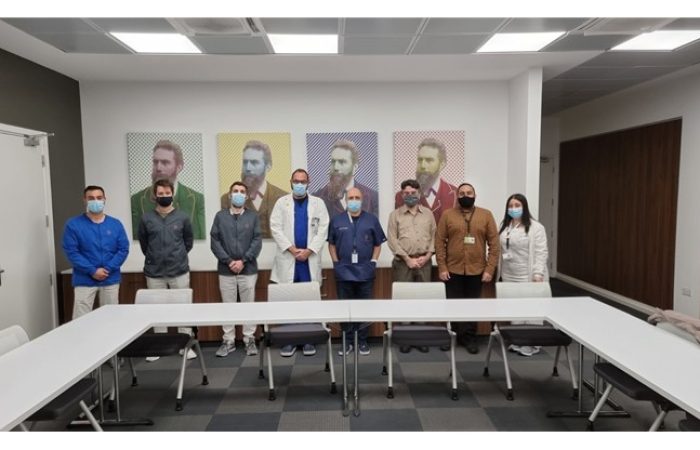The KIOS Research and Innovation Center of Excellence at the University of Cyprus has initiated a research collaboration with the Department of Radiation Oncology of the German Oncology Center, aiming at the early detection of radiation dermatitis with the use of the Optical Coherence Tomography and Artificial Intelligence techniques.
Radiation dermatitis is a common but serious side effect of radiotherapy that is often used as a treatment for cancer. It is estimated that 95% of people receiving radiotherapy will develop some form of dermatitis, including erythema, flaking, hyperpigmentation and pain. Dermatitis usually appears within a few days or weeks of starting radiation therapy, depending on the dose and the sensitivity of the patient’s skin. In order to prevent the effects of dermatitis and to proceed painlessly with the treatment, it is necessary to detect it early even before any symptoms become visible.
To achieve this goal, Optical Coherence Tomography will be used to image the skin of patients who are receiving radiotherapy for head and neck cancer under the care of Dr. Iosif Strouthos, Radiation Oncologist at the German Oncology Center. The KIOS CoE research team, led by post-doctoral researcher Dr. Christos Photiou from the team of Prof. Constantinos Pitris, will extract quantitative biomarkers from the images in order to detect and predict dermatitis. Furthermore, Artificial Intelligence (AI) techniques will be used to develop a complete diagnostic system.
According to Professor Constantinos Pitris, “the research collaboration between the KIOS Center of Excellence and the Department of Radiation Oncology of the German Oncology Center has the potential to contribute significantly to the development of automated computer systems that can considerably improve patient prognosis by reducing the side-effects of radiotherapy”.



